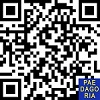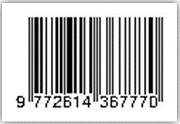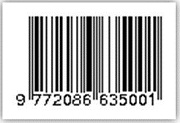THE NEED FOR PROBLEM-BASED LEARNING MEDIA THAT IS ORIENTED TO IMPROVE STUDENTS' MATHEMATICAL LITERACY AND SELF-EFFICACY
Abstract
Keywords
Full Text:
PDFReferences
Baikuna, L., Hidayatuloh, M. F., Rizal, M. F., Fitria, N., Anjelina, N. U., Mahendra, M. R. E., ... & Nisak, A. Z. (2024). The Role of Educational Technology in the Utilization of Social Studies Learning. Jurnal Pendidikan dan Ilmu Sosial (JUPENDIS), 2(1), 102-115. https://doi.org/10.54066/jupendis.v2i1.1182
Fauzi, E., Sinatrya, M. V., Ramdhani, N. D., Ramadhan, R., & Safari, Z. M. R. (2022). The Influence of Information Technology Advances on the Development of Accounting. Jurnal riset pendidikan ekonomi, 7(2), 189-197. https://doi.org/10.21067/jrpe.v7i2.6877
Anggraeni, H. (2020). Strengthening digital literacy-based blended learning in facing the era of industrial revolution 4.0. Al-Idarah: Jurnal Kependidikan Islam, 9(2), 190-203. http://dx.doi.org/10.24042/alidarah.v9i2.5168
Pratama, N. S., & Dermawan, D. A. (2020). Studi Literatur Model Blended Learning Pada Berbagai E-Learning Dalam Meningkatkan Hasil Belajar Pendidikan Vokasi/Kejuruan. IT-Edu: Jurnal Information Technology and Education, 5(01), 182-194. https://doi.org/10.26740/it-edu.v5i2.36817
Pentury, H. J. (2018). Development of PAUD teachers' literacy through reading, writing and arithmetic teaching materials in Limo and Cinere Districts. DIKEMAS (Jurnal Pengabdian Kepada Masyarakat), 1(1), 14-21.
Wahyuni, I. (2022). Digital Transformation Through Information Technology: Adapting the Role of Female Elementary School Teachers During the Pandemic. SITTAH: Journal of Primary Education, 3(2), 133-144. https://doi.org/10.30762/sittah.v3i2.566
Toisuta, J. S. (2021). The Role of Lecturers in Overcoming Online Learning Problems During the Covid-19 Pandemic. Fidei: Jurnal Teologi Sistematika Dan Praktika, 4(1), 24-43. https://doi.org/10.34081/fidei.v4i1.178
Fitriani, Y., Pakpahan, R., Junadi, B., & Widyastuti, H. (2022). Application of digital literacy in students' online learning activities. Journal of Information System, Applied, Management, Accounting and Research, 6(2), 439-448. https://doi.org/10.52362/jisamar.v6i2.784
Susanty, S. (2020). Online learning innovations in independent learning. Jurnal Ilmiah Hospitality, 9(2), 157-166.
Prabawati, M. N. (2018). Analysis of the mathematical literacy ability of prospective mathematics teachers. Mosharafa: Jurnal Pendidikan Matematika, 7(1), 113-120. https://doi.org/10.31980/mosharafa.v7i1.481
Janah, S. R., Suyitno, H., & Rosyida, I. (2019, February). The importance of mathematical literacy and mathematical critical thinking in facing the 21st century. In PRISMA, Prosiding Seminar Nasional Matematika (Vol. 2, pp. 905-910).
OECD. (2016). PISA 2015 Assessment and Analytical Framework: Science, Reading, Mathematic and Financial Literacy. Paris: OECD Publishing.
Kilpatrick, J. (2001). Understanding mathematical literacy: The contribution of research. Educational Studies in Mathematics 47, 101–116. https://doi.org/10.1023/A:1017973827514
Rambe, L. H., Malau, L., Manurung, M. E. R., Lubis, N. A., & Denti, W. K. (2023). Mathematics Literacy as a Key Competency in the 21st Century and Its Implications for Education in Elementary Schools. Jurnal Pendidikan Guru Sekolah Dasar, 1(1), 10-10. https://doi.org/10.47134/pgsd.v1i1.109
Rismen, S., Putri, W., & Jufri, L. H. (2022). Mathematics Literacy Ability Reviewed from Learning Style. Jurnal Cendekia, 6(1), 348-364.
OECD. (2022). Program for International Student Assessment (PISA). National Center for Education Statistics. https://nces.ed.gov/surveys/pisa/
Yunarti, T., & Amanda, A. (2022, November). The importance of numeracy skills for students. In Seminar Nasional Pembelajaran Matematika, Sains Dan Teknologi (Vol. 2, No. 1, pp. 44-48). Retrieved from http://e-jurnal.fkip.unila.ac.id/index.php/SINAPMASAGI/article/view/92
Rafiqoh, S. (2020). Directions of trends and issues in mathematics learning according to 21st century learning to face the industrial revolution 4.0. Jurnal MathEducation Nusantara, 3(1), 58-73. https://doi.org/10.54314/jmn.v3i1.101
Samura, A. O. (2015). The use of media in mathematics learning and its benefits. Delta-Pi: Jurnal Matematika Dan Pendidikan Matematika, 4(1).
Indrawati, F. (2020, July). Improving Mathematical Literacy Skills in the Era of Industrial Revolution 4.0. In SINASIS (Seminar Nasional Sains) (Vol. 1, No. 1).
Ishartono, N., & Nurcahyo, A. (2018). Case Study of Powerpoint-Based Mathematics Learning Media by Semester 6 Students of the UMS Mathematics Education Study Program. JINoP (Jurnal Inovasi Pembelajaran), 4(2), 141-150.
Hasriadi, H. (2022). Innovative learning methods in the era of digitalization. Jurnal Sinestesia, 12(1), 136-151. Retrieved from https://sinestesia.pustaka.my.id/journal/article/view/161
Darma, I. K., Karma, I. G. M., & Santiana, I. M. A. (2020, February). Blended learning, innovation of mathematics learning strategies in the era of the industrial revolution 4.0 for higher education. In PRISMA, Prosiding Seminar Nasional Matematika (Vol. 3, pp. 527-539). Retrieved from https://journal.unnes.ac.id/sju/prisma/article/view/37580
Puspitasari, I. A., Azainil, A., & Basir, A. (2022, July). The use of learning media in the problem based learning model in mathematics subjects. In Prosiding Seminar Nasional Pendidikan Matematika, Universitas Mulawarman (Vol. 2, pp. 75-92).
Nizaruddin, N., Muhtarom, M., & Kurniawati, A. (2024). The Effectiveness of Problem Based Learning Model based on Culturally Responsive Teaching to Improve Mathematical Literacy Ability. Proximal: Jurnal Penelitian Matematika dan Pendidikan Matematika, 7(2), 937-944. https://doi.org/10.30605/proximal.v7i2.4073
Fajriati, A. S., Nurcahyo, A., & Pratama, S. D. Y. (2024). Improving Students' Mathematical Literacy Skills Through the Problem Based Learning Model. Jurnal Ilmu Pendidikan dan Pembelajaran, 6(3). Retrieved from https://journalpedia.com/1/index.php/jipp
Barrows, H. S. (2000). Problem-Based Learning Applied to Medical Education, Southern Illinois University Press, Springfield.
Barrows, H. S. (1996). Problem-based learning in medicine and beyond: A brief overview. Bringing Problem-Based Higher Education: Theory and Practice: New directions for Teaching and Learning, 8(5-6).
Bandura, A. (1977). Self-Efficacy: Toward a Unifying Theory of Behavioral Change. Psychological Review, 84.
Schunk, D.H. Self-efficacy and achievement behaviors. Educ Psychol Rev 1, 173–208 (1989). https://doi.org/10.1007/BF01320134
Zimmerman, B. J. (2000). Self-efficacy: An essential motive to learn. Contemporary educational
Octaria, D., & Sari, E. F. P. (2018). Increasing student self-efficacy through Problem Based Learning (PBL) in linear program courses. Jurnal Elemen, 4(1), 66-79.
Khoirunnisa, N., Ramdhany, M. A., & Tanuatmodjo, H. (2023). The Effect of Self-Efficacy and Learning Independence on Learning Achievement (Case Study on UPI Accounting Education Students). Fineteach: Journal of Finance, Entrepreneurship, and Accounting Education Research, 3(2), 162-176.
Nurhayati, S. E., Supratman, S., & Rahayu, D. V. (2023). Canva for Education-Assisted Interactive Learning Media Development with an Rme Approach to Improve Mathematical Literacy Skills. AKSIOMA: Jurnal Program Studi Pendidikan Matematika, 12(4), 3627-3643. http://dx.doi.org/10.24127/ajpm.v12i4.8257
Annisa, F., Kurniati, D., Murtikusuma, R. P., Pambudi, D. S., & Suwito, A. (2022). Development of geogebra-assisted media on the linear-square inequality system in improving students' mathematical literacy. AKSIOMA: Jurnal Program Studi Pendidikan Matematika, 11(3), 2269. https://doi.org/10.24127/ajpm.v11i3.5078
Rizqiyani, Y., Anriani, N., & Pamungkas, A. S. (2022). Development of kodular-assisted e-modules on smartphones to improve the mathematical literacy skills of junior high school students. Jurnal Cendekia: Jurnal Pendidikan Matematika, 6(1), 954-969.
Khusna, M., Fatih, M., & Alfi, C. (2024). Development of Augmented Reality-Based Flipbook Media Cultural Diversity Materials to Increase Self Efficacy of Grade IV Students. Jurnal Perseda: Jurnal Pendidikan Guru Sekolah Dasar, 7(1), 30-39.
Taufiq, T., Junaidi, J., & Mirunnisa, M. (2024). Microsoft Mathematics Software-Based Learning Media in Algebra Learning to Improve the Self-Efficacy of Junior High School Students 1 Sakti. Jurnal Sosial Humaniora Sigli, 7(1), 576-584. https://doi.org/10.47647/jsh.v7i1.2432
Wijono, A. P. S. H., Alfi, C., & Fatih, M. (2024). Development of Augmented Reality-based Pop-Up Books Materials for Building Spaces to Increase Self Efficacy of Grade V Students of SDN Sumberdiren 01 Blitar Regency. Jurnal Simki Pedagogia, 7(2), 377-386. https://doi.org/10.29407/jsp.v7i2.714
Sopanda, L., Sari, S. K. N., & Mardiana, M. (2022). Integration of geogebra and problem-based learning in improving understanding of SPLDV material concepts. Juwara, 2(1), 25-36. https://doi.org/10.58740/juwara.v2i1.36
Sanusi, W., Kusnendar, J., & Azmi, N. N. (2024). Implementation of the Cisco IT Essentials Virtual Interactive Media Assisted Learning Model to Improve Student Learning Outcomes. Indonesian Journal of Business Intelligence (IJUBI), 7(1), 37-46. http://dx.doi.org/10.21927/ijubi.v7i1.4269
Putri, W. K., Sofwan, M., & Noviyanti, S. (2022). The Role of Teachers in Increasing Student Learning Motivation Using the Problem Based Learning Model with Technology Integration in Grade IV Students of SDN 124/VIII Sidorejo. Jurnal Pendidikan Dan Konseling (Jpdk), 4(2), 46-52. https://doi.org/10.31004/jpdk.v4i2.3861
Rijali, A. (2018). Analisis data kualitatif. Alhadharah: Jurnal Ilmu Dakwah, 17(33), 81-95.
Herlina, E., & Abidin, Z. (2024). Development of interactive e-modules to improve students’ scientific literacy abilities: A literature review. Jurnal Mangifera Edu, 8(2), 74-87.
Kuswidyanarko, A., Wardono, W., & Isnarto, I. (2017). The Analysis of Mathematical Literacy on Realistic Problem-Based Learning with E-Edmodo Based on Student’s Self Efficacy. Journal of Primary Education, 6(2), 103-113.
Utari, T. S. G., Kartasasmita, B. G., & Julika, C. (2019). The application of situation-based learning strategy to improve literacy skills, mathematical problem-solving ability and mathematical self-efficacy at senior high school students. International Journal of Innovation, Creativity and Change, 6(1), 89-102.
Atho'illah, I., Kartono, K., & Masrukan, M. (2022). Mathematics Literacy Based on Self Efficacy with a Flipped Classroom Model Using Dynamic Assessment. Prisma, 11(1), 42-52. https://doi.org/10.35194/jp.v11i1.2153
Yolantia, C., Artika, W., Nurmaliah, C., Rahmatan, H., & Muhibbuddin, M. (2021). Application of problem-based learning modules to self-efficacy and student learning outcomes. Jurnal Pendidikan Sains Indonesia, 9(4), 631-641. https://badge.dimensions.ai/details/doi/10.24815/jpsi.v9i4.21250?domain=https://jurnal.usk.ac.id
DOI: https://doi.org/10.31764/paedagoria.v16i3.30573
Refbacks
- There are currently no refbacks.
Copyright (c) 2025 Muhammad Rafi Fajar Rizky, Burhanudin Arif Nurnugroho, Andriyani Andriyani

This work is licensed under a Creative Commons Attribution-ShareAlike 4.0 International License.
Paedagoria : Jurnal Kajian, Penelitian dan Pengembangan Kependidikan
Fakultas Keguruan & Ilmu Pendidikan | Universitas Muhammadiyah Mataram.
_______________________________________________
 | Paedagoria : Jurnal Kajian, Penelitian dan Pengembangan Kependidikan |
______________________________________________
CURRENT INDEXING:
EDITORIAL OFFICE:


















